Lost in the swirl of events over the past three weeks, as well as the rapid pace of events in cases in multiple courts involving former President Trump, is the fact that he moved to dismiss the Washington D.C. case filed against him by Special Counsel Jack Smith based on a claim of “Presidential immunity” from criminal prosecution for acts while in office.
On October 19, 2023, Smith filed an Opposition to that motion. Much like the motion itself, the Opposition escaped scrutiny as it came around the same time Sidney Powell and Kenneth Chesebro pled guilty – to what I’m still not certain – in the Georgia case, the judge in the New York state civil case was imposing sanctions and a gag order against the former President, and the judge in the DC case imposed, and then stayed, a gag order against the former President in that case.
In addition to the motion asserting Presidential immunity, Trump’s legal team filed additional motions last week challenging the case based on a variety of constitutional and statutory grounds. The oppositions from Smith to those motions are not yet due. The immunity motion might eventually be part of a single hearing addressing all the various motions filed to this point in the case, or it may be heard on its own.
So while the lack of attention given to the motion and opposition based on a claim of Presidential Immunity may be understandable, the significance of the motion and the arguments advanced by each side are not any less ground-shaking.
This is not a 3500-word tome with a detailed legal analysis of the various authorities and caselaw cited by each side. There is one pleading still to be filed – a reply from the former President to the SCO Opposition filed nearly two weeks ago.
The foundation of Trump’s motion is that there should be absolute immunity from criminal prosecution for former Presidents related to their official duties while in office. Smith’s Opposition argues that any such prohibition would run contrary to the axiomatic principle that “no man is above the law.”
Here is the problem – the law as established in the 230-plus years since the adoption of the Constitution provides no clear answer to this question. No subsequent administration has ever prosecuted the leader of the opposition political party who occupied the Office of the Presidency prior to that Administration. That is something that tends to only happen in Banana Republics, to prevent the predecessor from attempting to regain office in the next scheduled election.
So, regardless of what either side claims in their pleadings, the question of immunity of a former President from criminal prosecution for actions taken while in office is novel and presents an “issue of first impression” for the Courts to resolve. Any claim to the contrary is legally ignorant or expresses a bias as to what the outcome should be. The question has never been answered, because it has never before been an issue that needed an answer.
So, which side has the better argument as to whether such an immunity should be found to exist?
Smith has said that “no man is above the law” – and that’s just about it. That might seem a bit flip on my part, but in an Opposition that has 42 pages of “argument,” I count that phrase being used six times in the first nine pages alone.
What the former President has is the case of Nixon v. Fitzgerald, a Supreme Court çase decided in 1982. Fitzgerald was a civilian federal contractor with the Air Force who lost his position – he claimed – because of testimony he gave to Congress in 1968. He sued Nixon in his personal capacity, as well as others, because he blamed Nixon for the decision to terminate his relationship with the Air Force.
Nixon asserted in both the District Court and the Appeals Court that he was immune from a civil suit for damages for actions he took while in office. Both the District Court and the Appeals Court rejected Nixon’s claim of immunity. But the Supreme Court took the matter up prior to trial and overruled both lower courts, finding that a President does enjoy absolute immunity from civil damage lawsuits for acts taken while in office pursuant to his authority as President. The boundary for conduct falling within that absolute immunity was acts within the “outer perimeter” of the President’s official responsibility. Former President Trump contends that all the operative facts relied upon by Smith in the indictment fall within the “outer perimeter” of his official responsibility while in office.
What the Supreme Court did not say in Fitzgerald was that the immunity recognized therein would extend to immunity from criminal prosecution for acts “within the outer perimeter” of Trump’s official responsibility. Smith’s response to Fitzgerald relies primarily on that point. But the Court did not say that such immunity would not apply either – that question was not before the Court.
It is an axiomatic principle of Supreme Court case interpretation that questions not before the Court are not resolved by the Court’s opinion unless that is EXPRESSLY stated by the Court. The reason for that is that the issue of immunity from criminal prosecution of a former President was not briefed or argued by the parties, nor was it decided by a vote of the nine justices who decided the Fitzgerald case.
What Trump argues is that the reasons for giving a former President absolute immunity from civil damage lawsuits apply equally in answering the question as to whether a former President should have immunity from criminal prosecution. The Supreme Court did say in Fitzgerald that the public interest in allowing civil damage suits is not as significant as the public interest in criminal prosecutions, such that the societal costs of granting such immunity – individuals in the future would not be able to sue ex-Presidents for money -- does not outweigh the benefits of granting such immunity.
“The President's unique status under the Constitution distinguishes him from other executive officials. Because of the singular importance of the President's duties, diversion of his energies by concern with private lawsuits would raise unique risks to the effective functioning of government…. a President must concern himself with matters likely to "arouse the most intense feelings." Yet, as our decisions have recognized, it is in precisely such cases that there exists the greatest public interest in providing an official "the maximum ability to deal fearlessly and impartially with" the duties of his office…. This concern is compelling where the officeholder must make the most sensitive and far-reaching decisions entrusted to any official under our constitutional system. Nor can the sheer prominence of the President's office be ignored. In view of the visibility of his office and the effect of his actions on countless people, the President would be an easily identifiable target for suits for civil damages. [FN omitted] Cognizance of this personal vulnerability frequently could distract a President from his public duties, to the detriment of not only the President and his office but also the Nation that the Presidency was designed to serve.”
The Court did say that the public has a greater interest in criminal prosecutions than in civil damages lawsuits, and that fact played a role in not allowing Fitzgerald to pursue his case against Nixon personally. But the same interests in granting immunity – laid out in the text above – applies in both situations, and the Supreme Court did not suggest that the case for immunity would be less compelling if the issue before it involved a criminal prosecution.
There are now state prosecutors who campaigned for their offices on a pledge to “Get Trump.” Two in New York and one in Georgia have brought civil and criminal cases against him – one involving events and actions taking place while he was President.
A federal Special Counsel, on behalf of the Justice Department, has crafted novel and legally suspect theories of criminality never before employed as part of two cases in different federal courts. The aura of criminality around the leader of the political opposition – and likely nominee for the Office of President in the 2024 election -- has been fabricated by a grand jury process involving the one-sided presentation of “evidence” and legal argument behind closed doors, with no exculpatory or contradictory evidence being required to be presented.
We now have the specter of a “gag order” – with a threat of detention if violated – limiting that candidate’s ability to speak to the electorate on the campaign trail about the charges against him, those leveling accusations of criminal conduct, and the governmental actors using the levers of government authority in a manner that interferes with the electoral process. This is all taking place for the first time in our history, with the candidate now rising in the polls -- potentially as a backlash against what is taking place.
The harm this creates is that in the future, while in office and executing his/her duties, Presidents will now need to consider the possibility that after leaving office some politically motivated state or federal prosecutor will use the exercise of Presidential authority as a basis to fabricate a politically motivated criminal case. Entertaining such considerations in real time is now a necessity, not an abstraction.
This could create a “chilling effect” on the willingness of future Presidents to take bold action of a kind often involved in Presidential decision-making. Having the protection of immunity would eliminate such concerns, which is exactly the calculation adopted by the Supreme Court in Fitzgerald.
There was no textual basis in the Constitution or in the common law for finding such immunity to exist in Fitzgerald. The same situation is now present in U.S. v. Trump, and it is of no consequence that Smith shouts from the rooftop of the federal courthouse in Washington D.C. that there is no historical basis to afford former President Trump immunity here.
Yes, it would create a substantial barrier to even the justified pursuit of a criminal prosecution of any future President for alleged criminal behavior while in office. But it would not be an insurmountable barrier. The “Impeachment” process in the Constitution includes what is referred to as the “Judgment” clause – Article I, Section 3, Clause 7:
“Judgment in Cases of Impeachment shall not extend further than to removal from Office, and disqualification to hold and enjoy any Office of honor, Trust or Profit under the United States; but the Party convicted shall nevertheless be liable and subject to indictment, Trial, and Judgment and Punishment, according to Law.”
The House of Representatives impeached former President Trump for actions relating to the 2020 election, but he was not convicted by the Senate. His motion argues that criminal prosecution is allowed for conduct in office following an impeachment, conviction, and removal from office as stated in the “Judgment Clause.”
There is a logic and purpose for finding such a prerequisite. Impeachment and conviction, by the House and Senate respectively, provide the imprimatur of legitimacy from a co-equal branch of government closest to the people. It would provide independent justification for a subsequent elected Executive to prosecute the individual who was the prior elected Executive. Had the Senate convicted President Trump, that would have been a bipartisan “Judgment” that he had, in fact, committed “high crimes and misdemeanors” requiring his removal and disqualification from holding any office in the future. Such a finding would insulate a later criminal prosecution from claims of being politically motivated.
In a very real way, what partisan prosecutors are doing validates the exact point Trump is making as it confirms the risk identified by the Court in Fitzgerald. No one can look at what is happening – and by that, I’m referring to 5-plus members of the Supreme Court – and think anything other than “Future Presidents will now be required to consider the possibility of this “Banana Republic” type reality unless we put a stop to it with a finding of immunity.”
“No man is above the law?” A trite and inaccurate colloquial saying. In Nixon v. Fitzgerald, the Supreme Court decided exactly the opposite to be the case.
It is quite possible, seeing the Biden Administration sowing the seeds for a future whirlwind that might not be contained, the Supreme Court does the same again in United States v. Trump.
(EDITOR'S NOTE: We're very happy to welcome "Shipwreckedcrew" back as a RedState Columnist! You'll be able to read his columns -- some in front of the paywall, but many exclusively for our VIP members -- weekly, for the most part.
"Shipwreckedcrew" is the nom de guerre of attorney William "Bill" Shipley. Since October 2021, Bill has represented dozens of defendants charged in connection with January 6. His legal work is paid for primarily from contributions to the January 6 Legal Defense Fund on GiveSendGo. You can support his efforts at GiveSendGo.)
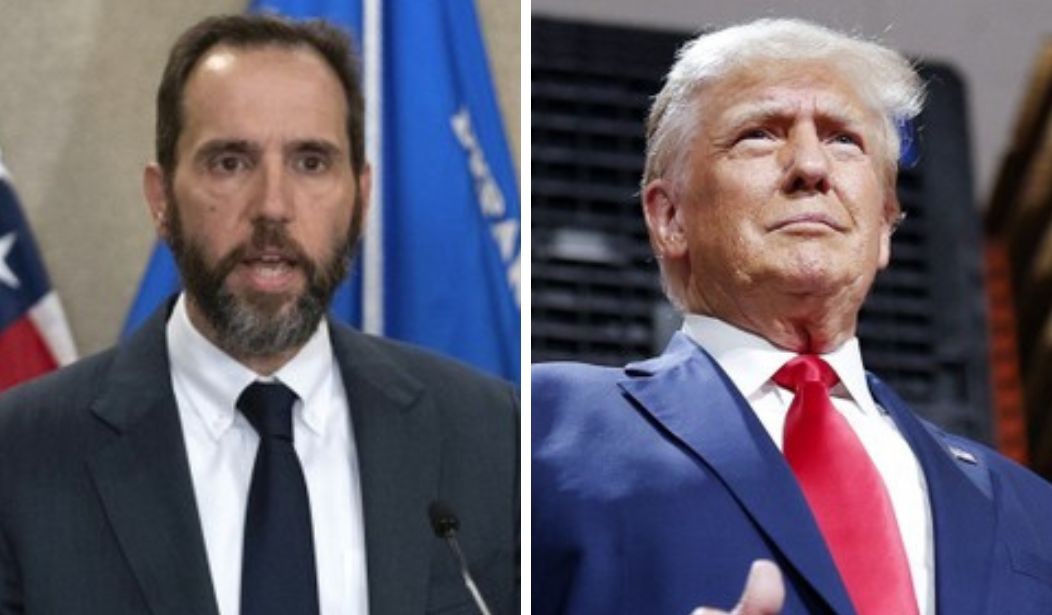


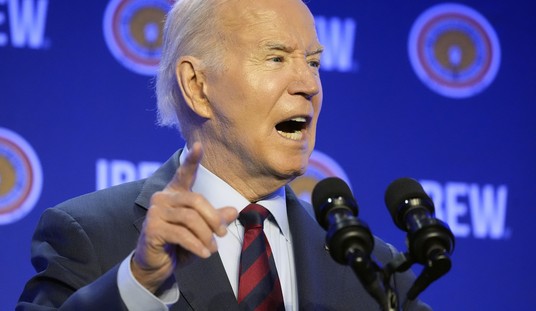

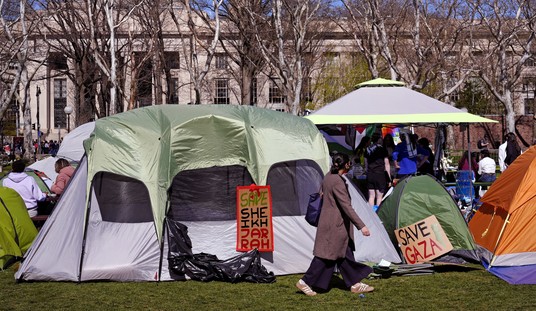

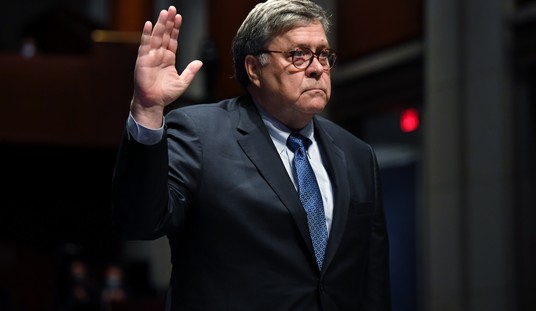


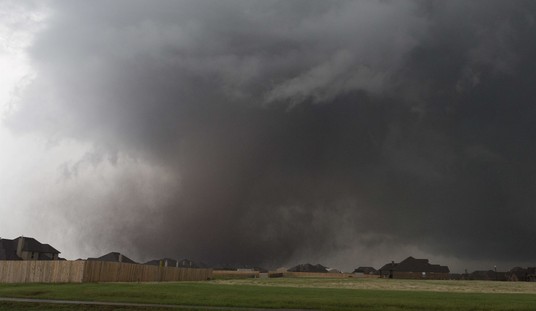

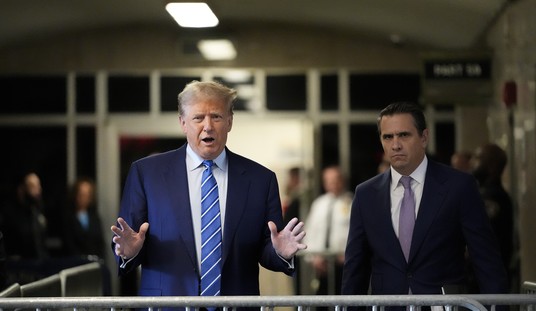
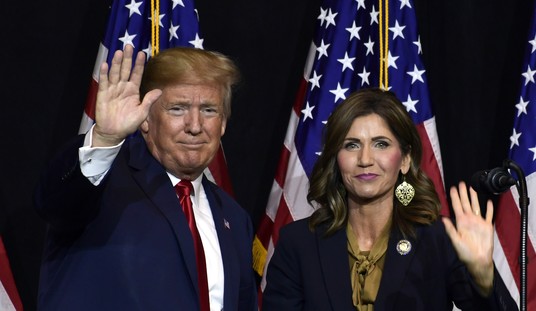
Join the conversation as a VIP Member